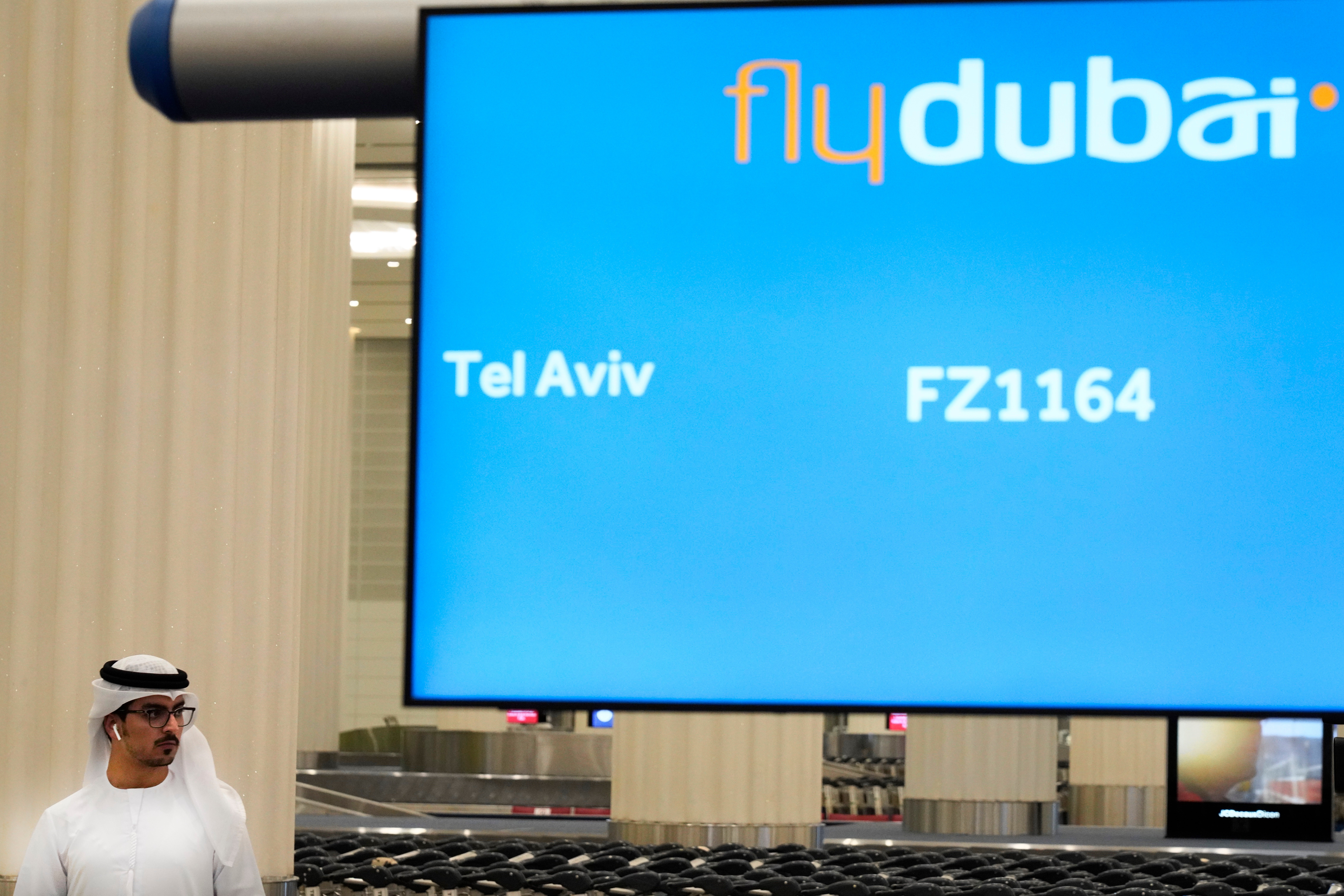Low-cost carrier FlyDubai begins Israel flights after deal
The low-cost carrier FlyDubai has begun regular flights to Tel Aviv, the latest sign of the normalization deal taking hold between the United Arab Emirates and Israel

Your support helps us to tell the story
From reproductive rights to climate change to Big Tech, The Independent is on the ground when the story is developing. Whether it's investigating the financials of Elon Musk's pro-Trump PAC or producing our latest documentary, 'The A Word', which shines a light on the American women fighting for reproductive rights, we know how important it is to parse out the facts from the messaging.
At such a critical moment in US history, we need reporters on the ground. Your donation allows us to keep sending journalists to speak to both sides of the story.
The Independent is trusted by Americans across the entire political spectrum. And unlike many other quality news outlets, we choose not to lock Americans out of our reporting and analysis with paywalls. We believe quality journalism should be available to everyone, paid for by those who can afford it.
Your support makes all the difference.The low-cost carrier FlyDubai began regular flights to Tel Aviv on Thursday, the latest sign of the normalization deal taking hold between the United Arab Emirates and Israel.
FlyDubai flight No. FZ1163 landed at Ben-Gurion International Airport at 11:38 a.m. after a 3 hour, 20 minute flight. It received a water salute by the ground crew. Israeli Prime Minister Benjamin Netanyahu then met FlyDubai's CEO Gaith al-Gaith, who was aboard the flight.
The return flight FZ1164, taking just over 2½ hours, arrived at Dubai International Airport at 6:37 p.m. Israeli tourists waved their Israeli passports to journalists watching them arrive at baggage claim.
Israeli carrier El Al is scheduled to begin flights in December to Dubai, the skyscraper-studded tourist hub of the UAE, a federation of seven sheikhdoms including Abu Dhabi.
The UAE and Israel formalized their efforts to normalize relations in September at a White House event organized by President Donald Trump. The two countries had quiet relations prior, but in the time since, telephone calls now connect between the countries, tourists are starting to arrive and business delegations are seeking deals in both countries.
Largely left out of the accord are the Palestinians who have a decades-long conflict with Israel in seeking their own independent state. The Palestinians largely have viewed the normalization efforts of the UAE, as well as Bahrain and Sudan, as a stab in the back from their fellow Arabs.
The Emiratis at the time of the deal described it as “halting the annexation” of West Bank land claimed by the Palestinians in exchange for Emirati recognition. Netanyahu, however, has insisted that Israel has only suspended its plans to annex West Bank settlements.